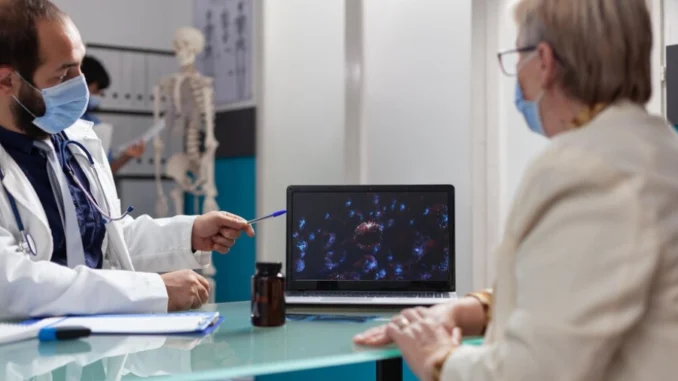
In a long time, the crossing point of medication and innovation has yielded exceptional progressions, especially in the domain of cardiac care.
Among these, counterfeit insights (AI) stand out as a transformative constraint, especially in making strides toward the conclusion of complex conditions such as cardiac amyloidosis.
Understanding Cardiac Amyloidosis
Cardiac amyloidosis is a uncommon but genuine condition where unusual proteins (amyloids) amass in the heart tissue, disabling its work over time. Diagnosing this condition customarily includes a combination of clinical doubt, imaging ponders (like echocardiography and cardiac MRI), and obtrusive biopsies to affirm the nearness of amyloid deposits.
The Part of AI in Diagnosis
AI calculations have illustrated critical potential in improving the precision and proficiency of diagnosing cardiac amyloidosis:
- Image Examination: AI can analyze restorative pictures, such as echocardiograms and MRIs, with a level of accuracy that outperforms human capabilities. By distinguishing unpretentious designs and surfaces demonstrative of amyloid stores, AI calculations can help radiologists and cardiologists in making more exact interpretations.
- Pattern Acknowledgment: Machine learning calculations exceed expectations in recognizing complex designs inside datasets. In the setting of cardiac amyloidosis, AI can identify particular designs of myocardial strain, morphology changes, and tissue characteristics that propose the nearness of amyloidosis at prior stages than conventional methods.
- Clinical Choice Back: Past picture investigation, AI can coordinated numerous information focuses counting clinical history, biomarkers, and hereditary data to give comprehensive symptomatic bolster. This all encompassing approach can help clinicians in making educated choices approximately treatment procedures and quiet management.
Benefits of AI in Cardiac Amyloidosis
- Early Discovery: AI calculations can possibly distinguish cardiac amyloidosis in its early stages when indications may be inconspicuous or missing, permitting for opportune intercession and progressed outcomes.
- Precision Medication: By fitting treatment plans based on person quiet information, AI encourages personalized care techniques that optimize results and minimize risks.
- Efficiency: Robotizing angles of determination decreases the time and asset burden on healthcare suppliers, empowering them to center more on persistent care and less on regulatory tasks.
Challenges and Considerations
While AI holds colossal guarantee, there are a few challenges to consider:
- Data Quality: AI models require huge sums of high-quality information for preparing and validation.
- Interpretability: Understanding how AI arrives at its conclusions (‘black box’ issue) remains a concern, particularly in basic therapeutic decisions.
- Ethical and Administrative Issues: Coordination AI into clinical hone requires tending to moral concerns with respect to understanding security, inclination in calculations, and administrative compliance.(Exploring the Benefits of Robotic Surgery for Patients in 2024)
Looking Ahead
As AI proceeds to advance, its part in diagnosing cardiac amyloidosis will likely extend. Collaborative endeavors between healthcare suppliers, analysts, and innovation designers are pivotal to saddling AI’s full potential in progressing persistent outcomes.
In conclusion, whereas challenges endure, the integration of AI into the demonstrative pathway for cardiac amyloidosis speaks to a noteworthy jump forward in present day medication. By leveraging AI’s capabilities, we can upgrade demonstrative exactness, streamline workflows, and eventually, change the scene of cardiac care.
Let’s proceed to investigate and grasp these developments mindfully, guaranteeing they advantage patients and healthcare suppliers alike in the battle against cardiac amyloidosis and past.